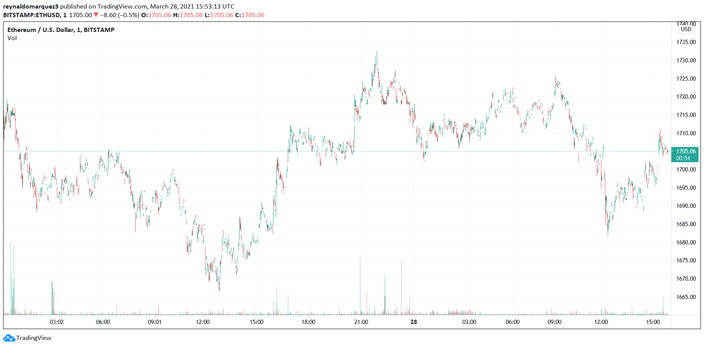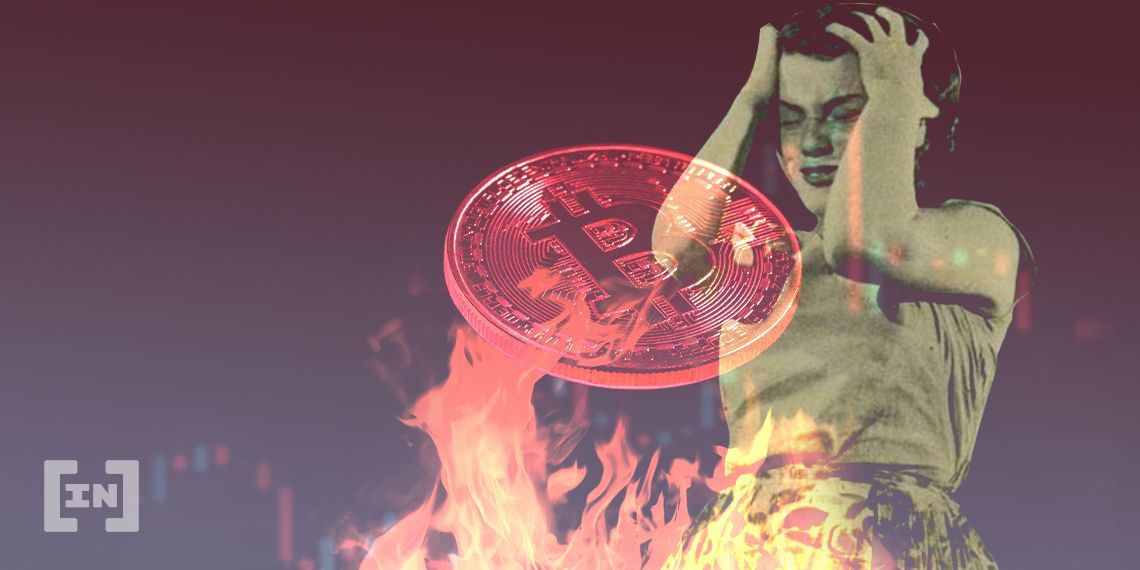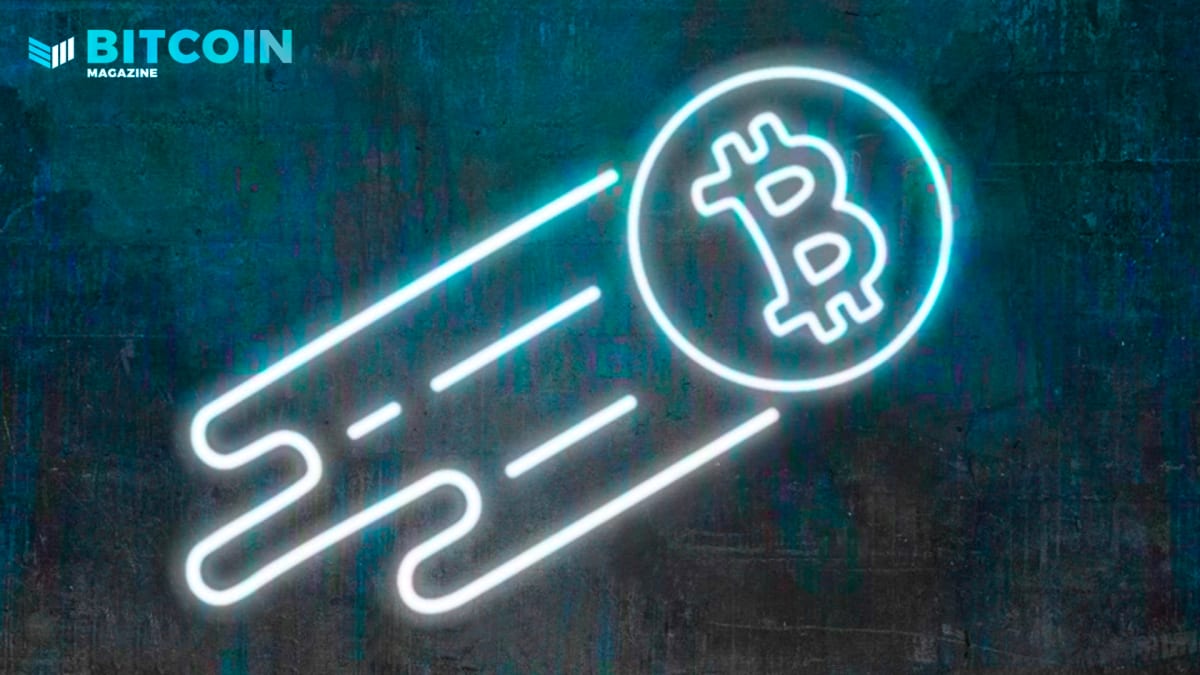2021-12-14 20:13 |
This essay will attempt to answer a question often discussed yet semantically challenging.
There’s been much discussion surrounding the question of determining whether or not Bitcoin is a religion. To truly understand the depth of this question, we must discuss belief, religion, organization, and dogma. Let’s answer this question beginning with a linguistic lens, and then continue through a philosophical discussion.
What Is Religion?This seems a simple question, but the solution is full of character, and definition is required for the sake of categorization. If we mean to categorize, or not categorize Bitcoin as religion, it must be defined.
Formally, Merriam-Webster defines religion as “an organized system of beliefs, ceremonies, and rules used to worship a god or a group of gods.”
Informally, they define it as “an interest, a belief, or an activity that is very important to a person or group.”
Archaically, it is referred to as “scrupulous conformity.”
Linguistically speaking, we can rule out the formal definition of religion in regard to Bitcoin, as there are no gods affiliated with Bitcoin. Though, some may make claims to its story of creation; of God and gods, there are none, though we will return to this definition to speak on organization.
Archaically, there are many descriptors I would associate with Bitcoin, however “conformity” is not among them. Satoshi’s Whitepaper begins:
“A purely peer-to-peer version of electronic cash would allow online payments to be sent directly from one party to another without going through a financial institution.”
At its heart, the creation of Bitcoin was meant to separate currency from financial institutions. Considering conformity is viewed as compliance with particular systems, rules and regulations, and Bitcoin means to nullify the necessity of legacy financial institutions and systems, we can agree that Bitcoin is not “scrupulous conformity.”
Then we are left with the informal interpretation of religion as a belief, interest, or activity that is important to a group of people. On the surface, one could be forgiven for following a logical path that describes Bitcoin as a system of beliefs that are important to a small portion of the public. But that is an oversimplification, and not even remotely close to the actual answer.
Understanding BeliefIn the Stanford Encyclopedia of Philosophy, when speaking on what belief is, Eric Schwitzgebel in “Belief” said
“Contemporary Anglophone philosophers of mind generally use the term ‘belief’ to refer to the attitude we have, roughly, whenever we take something to be the case or regard it as true.”
This depiction of belief is quite revealing when it refers to the act of believing an idea as an action of “attitude.” Attitude is a choice made from perspective and subjectivity. Attitudes are not considered truth, or objective information regarding any particular idea. Attitudes are a subjective experience only understood by the perceiver at the time of experience.
In this depiction we can see that belief requires subjectivity in the understanding of a particular ideology. Let’s look at some common beliefs of Bitcoiners:
· Money Printer Go Brrr. Most, if not all Bitcoiners will tell you that the central banking systems of the world are allowing a minority to benefit from the endless increase of monetary supply resulting in the debasement of global currencies, and Bitcoin prevents these institutions from being able to do this.
· Small Blocks Win. In the Block Size Wars, two factions within the Bitcoin community went to civil war over the data size of blocks in the blockchain. Most in Bitcoin now will explain that smaller blocks allow for low-cost entry and keeps the nodes decentralized by not having massive hardware requirements.
· Not your keys, not your coins. Bitcoiners will often speak to sovereignty in reference to storing bitcoin off of exchanges, with the belief that one day bad actors might act maliciously, from their own intent or the government’s, or suffer attacks from security breaches, resulting in the loss of your bitcoin.
None of these beliefs are Bitcoin.
They can certainly be defined as “propositional attitudes,” as Eric outlines in “Belief.” In short, a propositional attitude is presented as (SA that P): S for subject, A for attitude, and P for proposition.
“Ahmed [the subject] hopes [the attitude] that Alpha Centauri hosts intelligent life [the proposition].” Here Eric outlines our subject, the attitude they have towards a given ideal, and the proposition (or thing to be believed). Shall we create one?
Larry [subject] agrees [attitude] that the Federal Reserve Board central banking system has printed money and debased the value of the U.S dollar [proposition]. This can be categorized as a belief. It is an attitude towards a specific ideal. Bitcoin is not an attitude.
What Is Bitcoin?Is Bitcoin a blockchain? No. While its data structure is a blockchain, that does not mean we identify it as only that. Many other platforms use decentralized ledgers to store data, known as blockchains. This is not unique to Bitcoin, so we cannot claim that Bitcoin is a blockchain as its defining factor when others utilize the same data structure.
Is it currency? No. Bitcoin, the asset, can function as a currency and is most assuredly going to continue down a path of adoption. But it does not exist as a currency, that is a function that can be used if others accept its premise. This is a belief.
Is it a hedge against inflation? No. Using the exact same logic above, the belief that one can use Bitcoin as a hedge does not make Bitcoin a hedge. You can choose to utilize this as a function you believe, but it does not make it true or remove the perpetuation of the ideal from being anything more than belief.
We must remove the subjectivity of our attitude and ideals to understand what Bitcoin is.
Bitcoin Is Software, Belief Is WeakProgrammatic objectivity based on a consensus model. While a consensus model does not necessitate truth, it does necessitate agreement. The history of Bitcoin exists and is wildly available to anyone willing to learn. All of this may sound simple, but it does go a bit further. The importance at this moment is to understand that Bitcoin removes subjectivity and belief, and leaves us with consensus and verifiability in a public database.
John Hawthorne argues that “belief is weak” when belief is understood as an idea that lacks evidence.
Of Belief And BitcoinIn 2015, John Hawthorne, Daniel Rothschild and Levi Spectre published an article by the name of “Belief Is Weak.” Hawthorn, a philosophy professor at the University of Southern California, states:
“Believing something is true, we argue, is compatible with having relatively little confidence in it. Asserting something requires something closer to complete confidence. Specifically, we argue that believing a proposition merely requires thinking it likely, but that thinking that a proposition is likely does not entitle one to assert it.”
This is the abstract of the article, but the clearest thing to note is that belief is based in propositions, and those propositions cannot be asserted due to lack of confidence, proof, evidence, or other mechanisms to allow the ideal to transform from proposition to knowledge.
In the notes of “Belief is Weak,” we can understand that “the requirement to conform one’s beliefs to one’s evidence is the requirement to conform one’s beliefs to one’s knowledge.”
The relegation of being assigned to belief is not only dangerous, but outright misrepresentative of what Bitcoin is. To propagate ideology that posits Bitcoin as a matter of subjectivity in a society that finds itself devoid of verifiable truth takes away from the absolute system of validation and provability that is haptically tangible.
To allow the depiction of belief to encroach on Bitcoin sets a precedent of being recognized as opinion or attitude towards an idea, rather than a verifiable, trustless, permissionless, peer-to-peer, software payment system that serves as verifiable knowledge … seems to be a clear path to being identified as fringe alignment of outsider ideology recognized as fantasy. This would cause massive hindrance to Bitcoin’s adoption.
Of Religion And Finance“I mean that all too often theorists have taken religion as a relatively unproblematic unitary and homogenous phenomenon that can be analyzed and compared about time and space without proper consideration of its multi-faceted and socially constructed character.” – “Social Theory and Religion” James A. Beckford, Professor Emeritus of Sociology at the University of Warwick.
The assignment of an ideal to nothing more than religion allows the culture or ideas to be appropriated to a subculture. In this reductive perspective, the actualizing of systemic repair to the underlying shattered system of finance seems not only improbable, but outright laughable.
Imagine a passionate dissertation explaining how joining the Church of the Flying Spaghetti Monster was the only way to fix the stock market. While this is an obviously, oversimplified comparison that borders absurdity, it allows a more accurate representation of what a gut reaction can look like when hearing about how “belief” can fix real-world issues.
Of Organization And SubculturesIdentifying characteristics of religion allow us to see if said characteristics are applicable to Bitcoin:
“When organized religion in America is viewed in one continuous panorama, from the beginning of the Federal period to the present time, its most conspicuous and distinctive features seem to be these: the full flowering of the denominational system, revivalism or evangelism, the ‘social gospel’, and the trend toward cooperation and union between denominations.” - Winfred E. Garrison, “Characteristics of American Organized Religion”
· Flowering of the Denominational System
o Religious denominations are subcultures/groups within the religion that respond to different forms of authority and doctrine. There are no denominations within the Bitcoin protocol. Everything is coded, public and accessible with a requirement of consensus to initiate change. There are no separations of authority or doctrine because parameters are maintained by code, not people, making this non-applicable. A divergence of consensus would lead to the creation of an entirely new asset through a process called a “hard fork”.
· Revivalism or Evangelism
o Revivalism is trying to bring back bygone ideology. Bitcoin is the only truly scarce digital asset of its kind, which suggests that it is not simply a return to sound money, but the creation of an entire new mechanism of wealth.
o Evangelism is a slippery slope. If loosely defined as “zealous advocacy,” then one can evangelize many things. Being a staunch advocate for climate change does not assume the existence of a climate-change-based religion. While we can clearly outline zealous advocates in the space, their advocacy is to development of the software, adoption of the software, and decentralization. Their advocacy is not to doctrine or deity, much like political activism. True evangelism requires zealous advocacy to faith-based systems, or belief, which we have determined does not exist within Bitcoin.
· The “Social Gospel”
o A social gospel manifests when the ideas associated with the doctrine of a specific religion function as applicable ethics towards social problems. The creation of Bitcoin in 2009 was a direct response to the failure of our economic system that positioned a peer-to-peer, trustless system. Economics is considered a social matter; however, “gospel” requires a moral obligation to religious conversion. While some individuals within the Bitcoin ecosystem may seek to evangelize, or orange-pill, there is no compulsion to do so from the network itself. · Cooperation Between Denominations
o This one is easy, in the absence of denominations, there can be no cooperation between them.
But what of individual belief?
Of Distributed Ledgers And Dogma“Dogma has had its history in the individual living man and nowhere else.” – Adolph Harnack, “History of Dogma”
Dogma is a set of principles established by an authority that is considered incontrovertibly true. While many people in the Bitcoin space hold a multitude of beliefs, none of them are dogmatic because there is no authority to govern those beliefs, nor to require them or expect their evangelism. These are only individual beliefs.
As the only scarce asset in the world that exists in a true, decentralized form, Bitcoin stands as a software implementation of economic and mathematical purity that recognizes no authority outside of code, resulting in no manipulatable governance with the requirement of consensus, precluding the existence of a dogma.
In “Obsessive Actions and Religious Practices,” Sigmund Freud famously said, “Religion is a collective neurosis.”
Bitcoin is a collective consensus.
This is a guest post by Shawn Amick. Opinions expressed are entirely their own and do not necessarily reflect those of BTC Inc or Bitcoin Magazine.
origin »Bitcoin price in Telegram @btc_price_every_hour
Bitcoin (BTC) íà Currencies.ru
|
|





















